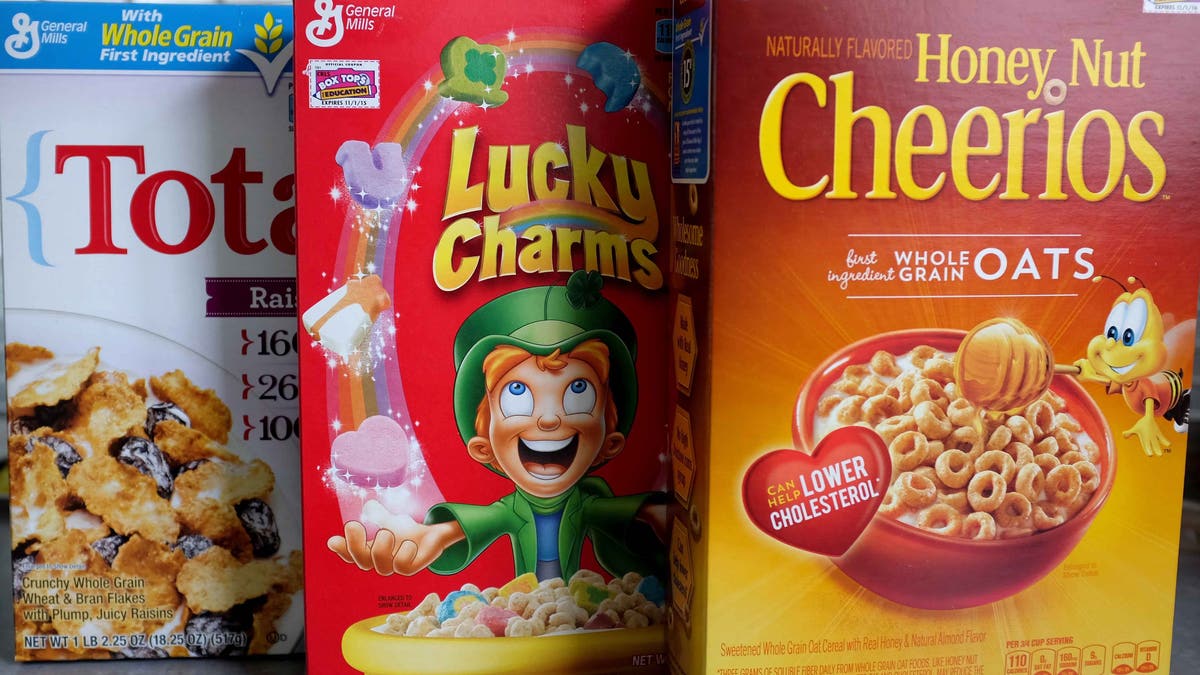
MIAMI, FL - SEPTEMBER 23: In this photo illustration, General Mills cereal products are seen on September 23, 2014 in Miami, Florida. During a share holders meeting tomorrow, General Mills investors are being given the opportunity to vote on whether the company should remove genetically modified organisms from its products. (Photo Illustration by Joe Raedle/Getty Images) (2014 Getty Images)
Caracas – U.S. manufacturer General Mills has sent shock waves across Venezuelan households and markets with its announcement earlier this week that it is closing shop in the socialist-run country.
The exit of General Mills, maker of popular brands like Cheerios and Häagen-Dazs ice cream, follows on the departure of two other American firms in recent months: Clorox, based in California, and the insurance giant Liberty Mutual, which left after 20 years operating in the country and losses in excess of $900 million.
“This is a decision to prioritize other growth opportunities within our Latin American portfolio,” said Sean Walker, president of General Mills Latin America, in a statement.
News of the closing came just days after the Minnesota-based company reported it was expecting a $35 million loss in the fourth quarter of the current fiscal period. Last year it lost $7 million, mostly due to the currency exchange controls in place since 2003 and a series of obstacles to repatriating profits.
“Since 2003, Venezuela’s government has made a series of decisions that hurt private property and scared away possible investors,” Jesús Casique, economist and professor at Venezuela´s Central University, told Fox News Latino.
“The monetary exchange control was activated that year, and companies depend on the dollars sold by the government to repatriate their profits,” he added.
President Nicolás Maduro’s government currently owes foreign companies approximately $6 billion, according to local financial firm Ecoanalitica. Or at least that’s the amount of debt the government has admitted to.
Between 2013 and 2016, when oil prices plummeted 76 percent, the amount of dollars circulating in Venezuela’s economy saw a dramatic reduction, prompting a further tightening of currency controls. Multinational companies’ revenues in Venezuela remain hopelessly trapped in the local bolivar.
Making matters worse, in an attempt to navigate the crisis, the government devalued the currency — prompting huge losses. Revenues will now have to be recalculated at a rate of 250 bolivars a dollar, compared to the 2014 rate of 12 bolivars per dollar, representing a loss of more than 95 percent.
Fox News Latino reached out to the American-Venezuelan Trade and Industry Chamber (Venamcham for short), but did not hear back.
According to the data posted on the chamber's website, trade between the U.S. and Venezuela fell 42.25 percent in 2015.
“Things are now worse than with late president Hugo Chávez, because the government doesn’t have dollars,” said Casique. “With a huge international debt and acute shortages, every available dollar will be used for other things instead of paying multinational companies.” He expects to see more companies leaving Venezuela this year.
Beside General Mills, other heavy-weight brands like Colgate, Pepsi, Procter & Gamble, Ford and General Motors have opted to remove Venezuela operations from their global operations to avoid a direct impact on the overall company's bottom line.
Casique said the move, seen as a first step toward a formal exit, comes at a steep price, because it means those branches are no longer allowed to get credit from parent companies. They operate more or less like local companies do and face the same pressures to downsize.
“In this economic crisis, Venezuela needs foreign investors more than ever to produce goods and create jobs. But the government is not doing anything to attract them,” Casique told FNL.
